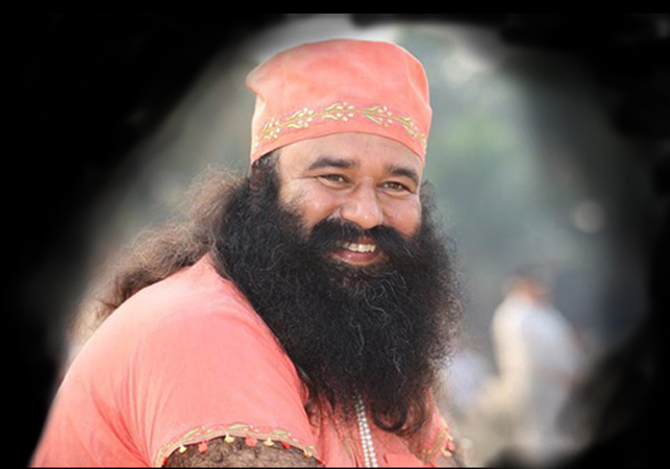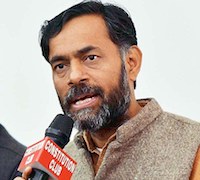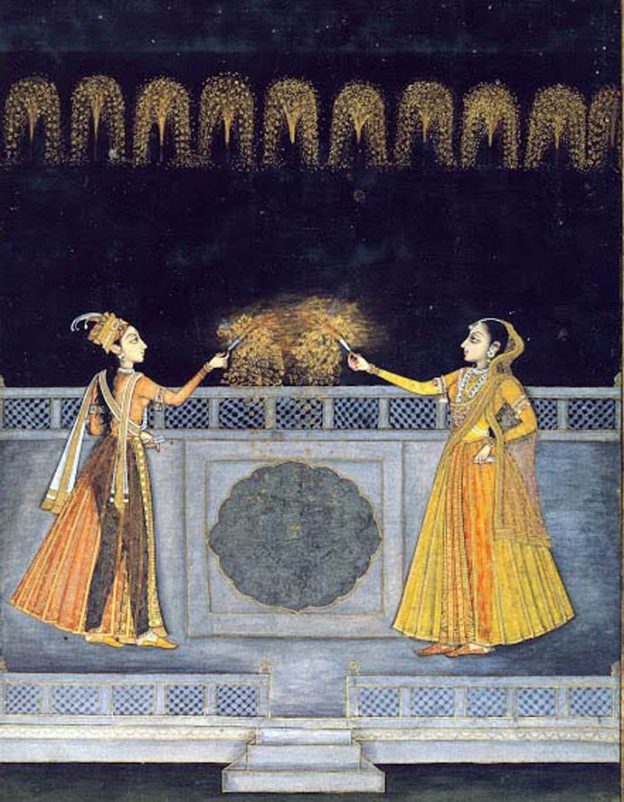

It is too early to feel elated. There is a VIP track in jail as Sanjay Dutt and Mukhtar Ansari have demonstrated. The episode also reeks of systemic failure and it seems odd that the nation is standing up to applaud a judge who just did his duty. And no one has questioned the death of so many fellow citizens in one police firing.
The Indian State has personnel, apparatus, intent but no institutions that can undertake routine and regular governance.
The sentencing of ‘Ram Rahim’ Gurmeet Singh has left us all a little smug. A false godman exposed, his empire about to be dismantled. At least one strand of the politician-baba nexus snapped. The government made to take firm action against violators of rule of law. Finally, if belatedly, the long arm of law has caught up with a high-profile criminal. A step in the right direction, it would seem.
I do not share this optimism. Not just because this is a very small and tentative step and there is no room for complacency here. Gurmeet Singh has just been convicted by the first trial court; he may soon be out, pending the final disposal of protracted appeals. He may be in jail, but the experience of Shashikala and Sanjay Dutt reminds us that there is a VIP track even inside jails: special facilities, long hospital visits, unusual paroles and what not.
For me ‘Ram Rahim’ episode stands for our systemic failure. The last one week exposed four dimensions of this failure: system of criminal justice, institutions of governance, political establishment and spiritual guardianship. The more we talk about some individual, episodic success, the more we underline our chronic collective failures.
It would be odd to speak of the failure of the system of criminal justice in the week when judiciary is about the only institution that has redeemed itself. Everyone agrees and has rightly applauded the judge of the CBI court, Jagdeep Singh, for his courage and rectitude. The role of the Punjab & Haryana High Court must have restored the faith of many citizens, and not just those living in Panchkula, in the constitutional order of things. This also happens to be the week when the Supreme Court has annulled Triple Talaq and has given a stirring, incisive and far reaching verdict in defense of citizens’ personal freedoms under the right to privacy.
Yet there is something odd if the whole nation has to applaud a judge for performing his normal duty. It is an acknowledgement that routine, regular dispensation of justice is so rare, when the accused happens to be someone as powerful as Gurmeet Singh. We cannot lose sight of the fact that it took fifteen years since the first complaint and nearly ten years of hearing for justice to be dispensed. It reminds us of all the pitfalls that our criminal justice system suffers from: victim’s reluctance to approach police in the first instance, refusal to take cognizance of the first complaint, brazen refusal to record dying declaration of a brave journalist for three weeks, protracted delays, appeals and other ways in which the powerful bend the law. It was a fortuitous coming together of fearless victim, meticulous & honest investigator and an upright judge that brought Gurmeet Singh to the book. This case brings out the capricious nature of our criminal justice system. As any good lawyer would tell you, it’s a lottery.
The governance failure in Panchkula touched a new low. Everything about the violence on the 25th was known well in advance: the date, the time, the venue and the actors. Thus, the occurrence on the 25th can only be attributed to lack of political will and the reluctant refusal to observe elementary protocols of law & order that were observed, for example, in Punjab. The episode also highlighted another growing institutional deficit: when the top boss blinks, everyone down the line takes a snooze.
If Haryana government’s inaction highlighted one aspect of government’s failure, its subsequent action highlighted the other dimension. Given the low credibility of Dera’s supporters, no one has yet asked searching questions about the death of 38 persons, one of the highest casualties, in police firing in one incident in recent times. Granting that use of force was necessary and sanctioned to deal with an unruly crowd, the question still remains if force was used as per procedure laid by law. Was the crowd given sufficient & effective warnings to disperse and told about possible consequences? Were all other avenues – tear gas, water cannons, rubber bullets, firing in air — duly exhausted before resorting to firing on the crowd? And, was there even an attempt to fire below the waist, as required?
Put together, the criminal inaction and action of Haryana government present the picture of a state that withers away, at least momentarily. The Indian State has personnel, apparatus, intent but no institutions that can undertake routine and regular governance.
The failure of political establishment is deeper than what we think. It is not just the comic, tragic failure of Mr. Khattar and his colleagues ever hopeful of dislodging him. It is not just the brazen collusion between the ruling BJP and Dera Sacha Sauda. We must not forget that all the major parties of Haryana and Punjab including the Congress, the Akalis and the INLD, have been in bed with the Dera at one point or the other in recent history. The BJP is clearly paying back for Dera’s support during 2014 elections, But so did the Congress in 2009 and the INLD before that. Let us not forget that none of the national leaders of any party that matters electorally in this region – BJP, Congress, SAD, INLD, AAP – have had the courage to welcome this verdict. Clearly no one wants to rule out a future deal with the Dera. It’s not just that our political establishment is opportunistic and ethically compromised, above all, this establishment is so weak, ever-dependent on the tiniest vote-bank that comes its way.
(The author is a politician, psepholigist and academic)





Be the first to comment